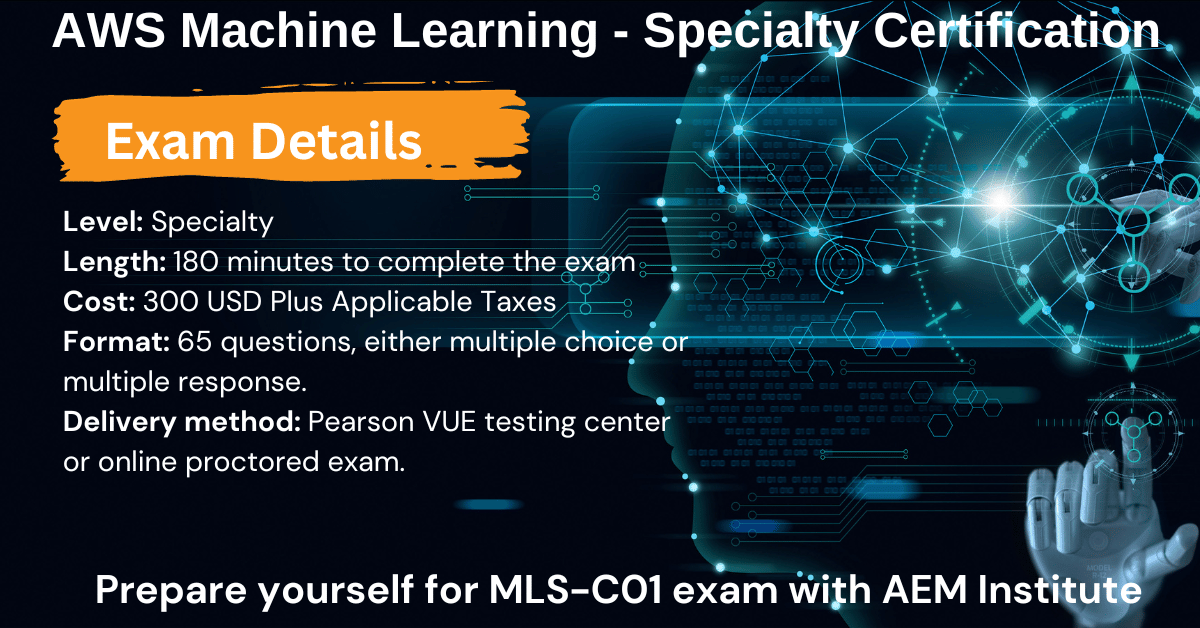how to become an Artificial Intelligence (AI) Engineer as IT Fresher in Kolkata?
If you are a Fresh Graduate in IT and interested to become an Artificial Intelligence (AI) Engineer you are in right place. In this article we are going to discuss the path for a successful Artificial Intelligence (AI) Engineer career.
Introduction
In today’s rapidly evolving technological landscape, the demand for skilled IT professionals continues to grow. Among the many exciting fields within IT, artificial intelligence (AI) and machine learning (ML) stand out as some of the most promising and dynamic areas. For IT freshers looking to embark on a rewarding career, investing time and effort in AI and ML training can be a game-changer.
This article explores how AI and ML training can empower IT freshers to build a rewarding career. We will delve into the importance of AI and ML in the IT industry, the benefits of acquiring these skills, and the various pathways available for beginners to get started.
The Growing Significance of AI and ML in IT
Artificial intelligence and machine learning have rapidly evolved from being buzzwords to becoming essential components of the IT landscape. These technologies are transforming industries, making businesses more efficient, and creating new opportunities for innovation. As AI and ML continue to mature, their impact on IT becomes increasingly profound.
- High Demand for AI and ML Experts: The demand for AI and ML professionals is soaring. Companies across various sectors are integrating these technologies into their operations to gain a competitive edge. As a result, there’s a persistent shortage of skilled individuals who can harness the potential of AI and ML, creating a lucrative job market.
- Diverse Application Areas: AI and ML find applications in diverse domains, including healthcare, finance, e-commerce, autonomous vehicles, and more. This diversity means that IT freshers can find opportunities that align with their interests and career goals within the AI and ML space.
- Continuous Innovation: AI and ML are at the forefront of technological innovation. IT professionals in these fields are constantly challenged to stay updated with the latest advancements, which fosters a dynamic and intellectually stimulating work environment.
Artificial Intelligence (AI) and Machine Learning (ML) have become integral parts of various industries, revolutionizing the way businesses operate and make decisions. AI/ML engineers play a critical role in developing and implementing AI and ML solutions. In this article, we will explore the job role of an AI/ML engineer, their responsibilities, skills required, and the impact they have on organizations.
Job Role and Responsibilities
AI/ML engineers are responsible for designing, building, and deploying AI and ML models and systems that can perform tasks without explicit programming. Their job role involves a wide range of responsibilities:
- Data Collection and Preparation: AI/ML engineers gather and preprocess data required for training and testing machine learning models. This involves cleaning and transforming data to ensure its quality and relevance.
- Model Development: They design and develop machine learning models and algorithms based on the project’s objectives. This includes selecting appropriate algorithms, tuning hyperparameters, and optimizing model performance.
- Training and Testing: AI/ML engineers train machine learning models using historical data, ensuring that the models can make accurate predictions or classifications. They also evaluate model performance through testing and validation.
- Feature Engineering: Engineers identify and engineer relevant features or attributes from data to improve the model’s accuracy and generalization.
- Deployment: Once a model is trained and validated, AI/ML engineers deploy it into production environments, making it available for real-time or batch processing. This often involves collaborating with DevOps teams to ensure seamless deployment.
- Monitoring and Maintenance: Engineers continuously monitor model performance in production, identifying and addressing issues like concept drift (when the data distribution changes over time). They may retrain models periodically to maintain accuracy.
- Scaling: As the organization’s AI/ML needs grow, engineers are responsible for scaling the infrastructure and models to handle increased workloads efficiently.
- Collaboration: AI/ML engineers collaborate with data scientists, domain experts, software engineers, and stakeholders to understand business requirements and align AI/ML solutions with organizational goals.
- Ethical Considerations: They must consider ethical and legal aspects of AI/ML, ensuring data privacy, fairness, and transparency in model decision-making.
Skills Required

To excel in the role of an AI/ML engineer, individuals need a diverse set of technical and soft skills:
- Programming: Proficiency in programming languages like Python and libraries such as TensorFlow and PyTorch is crucial for building and implementing AI/ML models.
- Mathematics and Statistics: A strong foundation in mathematics and statistics is essential for understanding the underlying principles of machine learning algorithms.
- Data Handling: Skills in data preprocessing, data cleaning, and feature engineering are required to work with diverse datasets effectively.
- Machine Learning Algorithms: In-depth knowledge of various ML algorithms, including supervised, unsupervised, and reinforcement learning, is necessary.
- Deep Learning: Familiarity with deep learning techniques, neural networks, and frameworks like Keras is valuable for tackling complex problems.
- Data Visualization: The ability to communicate results through data visualization tools like Matplotlib or Seaborn is essential for conveying insights effectively.
- Problem-Solving: AI/ML engineers should have strong problem-solving skills to identify and address issues in model performance and data quality.
- Software Development: Proficiency in software development practices and version control (e.g., Git) is beneficial for deploying and maintaining AI/ML solutions.
- Cloud and DevOps: Familiarity with cloud platforms (e.g., AWS, Azure, Google Cloud) and DevOps practices aids in deploying scalable and reliable AI/ML systems.
- Communication: Effective communication skills are crucial for collaborating with cross-functional teams and explaining AI/ML concepts to non-technical stakeholders.
Impact on Organizations with AI and ML Professionals
AI/ML engineers play a pivotal role in organizations by enabling them to leverage data-driven decision-making and automation. Their contributions have several key impacts:
- Improved Efficiency: AI/ML solutions automate repetitive tasks, leading to increased efficiency and reduced operational costs.
- Enhanced Accuracy: Machine learning models can make predictions and classifications with high accuracy, reducing errors in decision-making.
- Personalization: AI/ML models enable personalized recommendations and experiences for customers, increasing user engagement and satisfaction.
- Predictive Analytics: Organizations can use AI/ML to forecast trends, identify potential issues, and make proactive decisions.
- Competitive Advantage: Companies that effectively implement AI/ML gain a competitive edge by offering innovative products and services.
- Cost Savings: AI/ML-driven automation can lead to cost savings by optimizing processes and resource allocation.
- Revenue Growth: AI/ML can identify new revenue streams and opportunities, helping organizations expand their businesses.
Benefits of AI and ML Training for IT Freshers
Now that we understand the growing significance of AI and ML in the IT industry, let’s explore how training in these fields can benefit IT freshers.
- Enhanced Career Prospects: Acquiring AI and ML skills opens the door to a wide range of career opportunities. Whether you aspire to become a data scientist, machine learning engineer, AI researcher, or data analyst, these skills are highly transferable and in demand across industries.
- Competitive Advantage: In a competitive job market, having AI and ML skills on your resume sets you apart from other candidates. It demonstrates your commitment to staying current with industry trends and your ability to tackle complex challenges.
- Lucrative Salaries: AI and ML professionals often command higher salaries compared to their counterparts in other IT roles. Companies are willing to offer attractive compensation packages to attract and retain talent in these fields.
- Job Security: As AI and ML continue to shape the future of technology, professionals with expertise in these areas are less likely to face job instability. Your skills will remain in demand as long as these technologies continue to advance.
- Innovation and Problem-Solving: AI and ML training equip you with problem-solving and critical-thinking skills. You’ll learn how to analyze data, identify patterns, and make data-driven decisions—a valuable skill set applicable in various job roles.
- Global Opportunities: AI and ML skills are in demand worldwide. This means that you have the flexibility to explore job opportunities not only in your home country but also abroad, broadening your horizons and experiences.

Paths to AI and ML Training for IT Freshers
Now that you’re aware of the benefits, it’s time to explore how IT freshers can get started with AI and ML training. Fortunately, there are various accessible pathways to acquire these skills.
- Online Courses and Tutorials: The internet is a treasure trove of resources for learning AI and ML. Platforms like AEM Institute, edX, Udacity, and Khan Academy offer comprehensive courses and tutorials for beginners. These platforms provide structured learning paths and often offer certificates upon completion.
- Open Source Libraries and Tools: Familiarize yourself with open-source libraries like TensorFlow, PyTorch, and scikit-learn. These libraries come with extensive documentation and a supportive community, making it easier to start experimenting with AI and ML algorithms.
- University and College Programs: Many universities and colleges offer degree programs and certificates in AI and ML. If you’re looking for a more structured and in-depth education, consider enrolling in a formal academic program.
- Bootcamps: Coding bootcamp, such as General Assembly and Data Camp, offer intensive, short-term AI and ML courses. These programs are designed to provide practical skills in a condensed timeframe, making them ideal for those who want to upskill quickly.
- Self-Paced Learning: For those with busy schedules or limited resources, self-paced learning can be a viable option. There are countless AI and ML books, blogs, and YouTube channels where you can find valuable insights and tutorials.
- Projects and Portfolios: Practical experience is invaluable in the AI and ML field. Work on personal projects, contribute to open-source projects, or participate in online hackathons to build a portfolio that showcases your skills to potential employers.
- Networking and Communities: Join AI and ML communities on platforms like LinkedIn, GitHub, and Stack Overflow. Engaging with professionals in the field can lead to mentorship opportunities, collaboration, and exposure to the latest trends.

Challenges and Tips for IT Freshers
While the path to AI and ML training is accessible, there are challenges that IT freshers may encounter. Here are some common obstacles and tips for overcoming them:
- Complexity: AI and ML can be complex, especially for beginners. Start with the fundamentals and gradually work your way up to more advanced topics. Consistent practice and patience are key.
- Mathematics: A strong foundation in mathematics, particularly linear algebra and calculus, is essential for understanding the underlying concepts of AI and ML. Consider taking supplementary math courses or using online resources to refresh your math skills.
- Resource Overload: With the abundance of online resources, it’s easy to feel overwhelmed. Focus on a specific learning path or curriculum that aligns with your goals, and don’t try to learn everything at once.
- Imposter Syndrome: Many beginners experience imposter syndrome—a feeling of inadequacy or self-doubt. Remember that everyone starts somewhere, and even experienced professionals had to learn from scratch at some point. Embrace the learning process.
- Practical Application: Theory alone isn’t enough; practical application is crucial. Try to apply what you learn to real-world problems or projects. Building a portfolio of projects will not only enhance your skills but also demonstrate your abilities to potential employers.
- Staying Updated: AI and ML are rapidly evolving fields. To stay relevant, make a habit of reading research papers, attending conferences, and participating in online forums to keep up with the latest developments.
- Collaboration: Don’t hesitate to collaborate with others. Learning from peers, working on group projects, and seeking mentorship can accelerate your learning journey.
Conclusion
For IT freshers, the decision to pursue AI and ML training can be a significant step towards building a rewarding career. The demand for professionals with these skills continues to rise, offering a plethora of opportunities in diverse industries.
The benefits of AI and ML training are substantial, including enhanced career prospects, competitive advantage, lucrative salaries, job security

Cybersecurity Architect | Cloud-Native Defense | AI/ML Security | DevSecOps
With over 23 years of experience in cybersecurity, I specialize in building resilient, zero-trust digital ecosystems across multi-cloud (AWS, Azure, GCP) and Kubernetes (EKS, AKS, GKE) environments. My journey began in network security—firewalls, IDS/IPS—and expanded into Linux/Windows hardening, IAM, and DevSecOps automation using Terraform, GitLab CI/CD, and policy-as-code tools like OPA and Checkov.
Today, my focus is on securing AI/ML adoption through MLSecOps, protecting models from adversarial attacks with tools like Robust Intelligence and Microsoft Counterfit. I integrate AISecOps for threat detection (Darktrace, Microsoft Security Copilot) and automate incident response with forensics-driven workflows (Elastic SIEM, TheHive).
Whether it’s hardening cloud-native stacks, embedding security into CI/CD pipelines, or safeguarding AI systems, I bridge the gap between security and innovation—ensuring defense scales with speed.
Let’s connect and discuss the future of secure, intelligent infrastructure.

